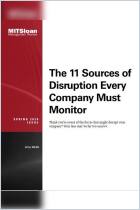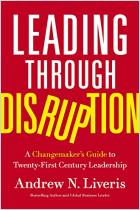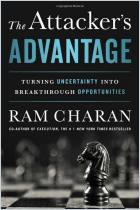Melden Sie sich bei getAbstract an, um die Zusammenfassung zu erhalten.

Melden Sie sich bei getAbstract an, um die Zusammenfassung zu erhalten.
Scott D. Anthony and Michael Putz
How Leaders Delude Themselves About Disruption
We’ve known for decades what causes disruption. So why are companies still allowing themselves to be vulnerable? The answer starts at the top.
MIT Sloan Management Review, 2020
Was ist drin?
Leaders need to transform themselves before they transform their organizations.
Recommendation
Clayton Christensen developed his theory of disruptive innovation in the mid-1990s. Although most executives will be familiar with it, few organizations have transformed to become capable of navigating it. Scott D. Anthony is a senior partner at growth strategy consultancy Innosight, and Michael Putz is a strategy and business development executive. In this insightful article for MIT Sloan Management Review’s special collection on disruption in 2020, Anthony and Putz pinpoint why leaders have lagged in preparing their organizations to meet disruption, and offer a surprising key to moving forward.
Summary
About the Authors
Scott D. Anthony is a senior partner at growth strategy consultancy Innosight and co-author of Dual Transformation: How to Reposition Today’s Business While Creating the Future. Michael Putz is a strategy and business development executive with two decades of experience driving growth through disruptive innovation and business transformation.
























Comment on this summary